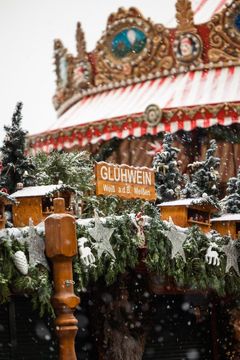Germany and its dynamic culture

Germany is a country in Central Europe, renowned for its rich history, vibrant culture, robust economy and diverse landscape.
Here are some key things to know about Germany:
- History : Germany has a complex history, marked by events such as the Holy Roman Empire, the Protestant Reformation, the Napoleonic Wars, the rise of nationalism and the two world wars. After World War II, Germany was divided into West Germany and East Germany until their reunification in 1990.
- Culture : German culture is rich and diverse, with significant contributions in the fields of literature, music, philosophy, art and architecture. Figures such as Goethe, Beethoven, Bach, Kant and Einstein have left an indelible mark on world culture.
- Economy : Germany has one of the most powerful economies in the world, with a robust manufacturing sector, a strong focus on innovation and export, and a highly skilled workforce. Renowned companies like Volkswagen, BMW, Mercedes-Benz, Siemens and Bayer are based in Germany.
- Tourism : Germany is a popular tourist destination, attracting visitors with its vibrant cities, medieval castles, lush green forests, picturesque villages and cultural festivals. Must-see sites include Berlin, Munich, the Black Forest, the Romantic Road, Neuschwanstein Castle and the Rhine Valley.
- Geography : Germany is bordered by nine countries, including France, Switzerland, Austria, the Czech Republic, Poland and the Netherlands. The country is crossed by several major rivers, including the Rhine, Moselle, Elbe and Danube, and includes a variety of landscapes, from mountains to plains and the coasts of the North Sea and the Baltic Sea.
- Language : The official language of Germany is German, although many people also speak English, especially in larger cities and tourist areas.
Christmas in Germany:
It is a very special and festive time, celebrated with great tradition and a deep sense of togetherness. This is how Christmas generally takes place in Germany:
- Advent Season : The Advent period, which precedes Christmas, is very important in Germany. It usually begins four weeks before Christmas and marks the start of preparations for the Christmas festivities. During this time, houses and streets are decorated with Advent wreaths, fairy lights and Christmas decorations.
- Christmas Markets : Christmas markets (Weihnachtsmärkte) are one of the main attractions during the Advent season. Cities and towns across the country hold these markets where people gather to buy gifts, Christmas decorations, treats and hot drinks. Christmas markets offer a festive atmosphere with decorated stalls, twinkling lights and often traditional music performances.
- Christmas Eve (Heiligabend) : December 24, known as Heiligabend, is Christmas Eve in Germany. It is a day of preparation for the evening feast, where families come together to celebrate. Many people attend religious services at church and return home for a festive meal with family.
- Culinary traditions : The traditional Christmas Eve meal in Germany varies by region, but can include dishes like roast pork, red cabbage, boiled potatoes, and Christmas dumpling soup (Kartoffelsalat und Würstchen) . Typical Christmas desserts include Stollen (sweet fruit bread), Christmas cookies (Plätzchen) and chocolates.
- Distribution of gifts : After the New Year's Eve meal, Christmas gifts are often exchanged. In Germany, it is often the Christkind, an angelic figure, who brings gifts to children, although in some regions it is the Weihnachtsmann (Santa Claus) who is associated with this tradition.
- Christmas Day and the day after: Christmas Day (Erster Weihnachtstag) is generally a calm and peaceful day spent with family. People sometimes go to church to attend special religious services. Boxing Day (Zweiter Weihnachtstag) is also a public holiday in Germany and is often used to spend time with family, visit relatives or simply relax.
In summary, Christmas in Germany is a time of joyful celebration and beloved traditions, where families come together to share special moments and create unforgettable memories.
Christmas markets in Germany:
They are a very popular tradition and an iconic part of the festive season in this country. Here is some information about Christmas markets in Germany:
- Tradition : Christmas markets, known as “Weihnachtsmärkte” in German, date back centuries. They offer a warm and festive atmosphere where people come together to celebrate the Advent season and purchase gifts, Christmas decorations, traditional sweets and seasonal culinary specialties.
- Atmosphere : Christmas markets are often decorated with twinkling lights, Christmas decorations, fir trees and ornate wooden stalls. Visitors can taste local specialties such as mulled wine (Glühwein), grilled sausages, potato pancakes (Reibekuchen), gingerbreads (Lebkuchen) and many other delicacies.
- Variety : Every city and region in Germany has its own Christmas markets, each with its distinct characteristics. The most famous include the Nuremberg Christmas Market (Nürnberger Christkindlesmarkt), the Cologne Christmas Market (Kölner Weihnachtsmarkt), the Munich Christmas Market (Münchner Christkindlmarkt) and the Strasbourg Christmas Market, which is located in Alsace, border region of Germany.
- Crafts and Gifts : Christmas markets offer a wide variety of traditional crafts, Christmas decorations, wooden toys, ceramics, handmade jewelry and other unique gifts that make perfect Christmas souvenirs.
- Events and Entertainment : In addition to shopping and tasting delicacies, many Christmas markets offer concerts, street performances, theater performances, children's rides and other activities to entertain visitors of all ages.
Christmas markets in Germany offer an authentic experience of the magic of Christmas and are a great way to celebrate the festivities with family and friends.